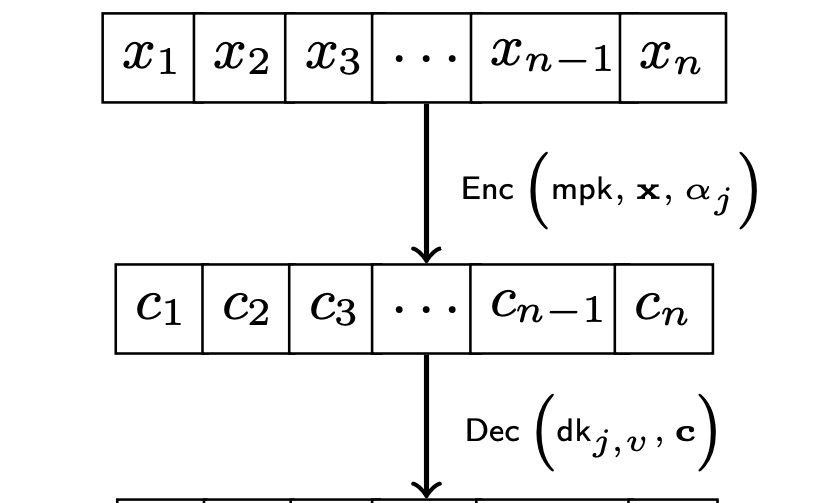Title: SPADE: Digging into Selective and PArtial DEcryption using Functional Encryption
Authors: Camille Nuoskala, Hossein Abdinasibfar and Antonis Michalas
Venue: 20th EAI International Conference on Security and Privacy in Communication Networks (SecureComm’24), 28—30 October 2024, Dubai, UAE.
Research Artifact: CODE
Abstract: Functional Encryption (FE) is a cryptographic technique established to guarantee data privacy while allowing the retrieval of specific results from the data. While traditional decryption methods rely on a secret key disclosing all the data, FE introduces a more subtle approach. The key generation algorithm generates function-specific decryption keys that can be adaptively provided based on policies. Adaptive access control being a good feature for privacy-preserving techniques, generic schemes have been designed to run basic functions, such as linear regression. However, they often provide a narrow set of outputs, resulting in a lack of thorough analysis. The bottom line is that despite significant research, FE still requires appropriate constructions to unleash its full potential in securely analyzing data and providing more insights. In this article, we introduce SPADE — a novel FE scheme that features multiple users and offers fine-grained access control through partial decryption of the ciphertexts. Unlike existing FE schemes, our construction also supports qualitative data, such as genomics, expanding the applications of privacy-preserving analysis to enable a comprehensive study of the data. SPADE is a significant advancement that balances privacy and data analysis, with clear implications in healthcare and finance. To verify its applicability, we conducted extensive experiments on datasets used in sleep medicine (hypnogram data) and DNA analysis (genomic records).



